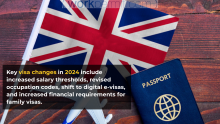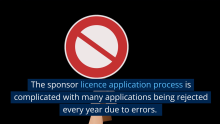Support migrant centric journalism today and donate

In late spring of this year, the European Parliament adopted a measure to help deal with the problem of an aging population and declining hghly skilled workforce; the so-called Blue Card. Following the example of Countries in other parts of the World, Europe wants skilled immigrants to help alleviate shortages in its labor market.

Currently, only 1.7 percent of the European working population are skilled immigrants, compared to 3.2 percent in the United States. The success of the United States Green Card has undoubtedly played a role in influencing Europe's efforts to attract top talent.
However, the success of Canada and Australia that also play a role. Both nations are aggressive in the pursuit of skilled foreign workers and utilize points based schemes to attract overseas help. These schemes score applicants based upon factors such as education, experience, and age.
While the European Union does not use a well-defined points based system, it has provided details of some requirements for applicants.
Foreign workers wishing to receive a blue card will likely have to have a valid job-offer. In addition, they will be required to have earned a degree from a bona fide educational institution that took at least three years to achieve or to have at least five years of experience in the relevant work sector.
In return, blue card holders will have access to social programs such as pensions and health care. They will also be allowed to move to another member state after 18 months if he or she obtains a job there. Family reunification is also allowed after six months, with spouses having the ability to work as well.
The goal is to better harmonize the 27 different immigration policies to help stem a looming demographic crisis. Studies have shown that Europe will have a shortfall of 20 million workers by 2030 if current trends continue.
Member nations will have two years to implement the blue card -- although some nations, such as Ireland and the UK, can opt out of the program.





















